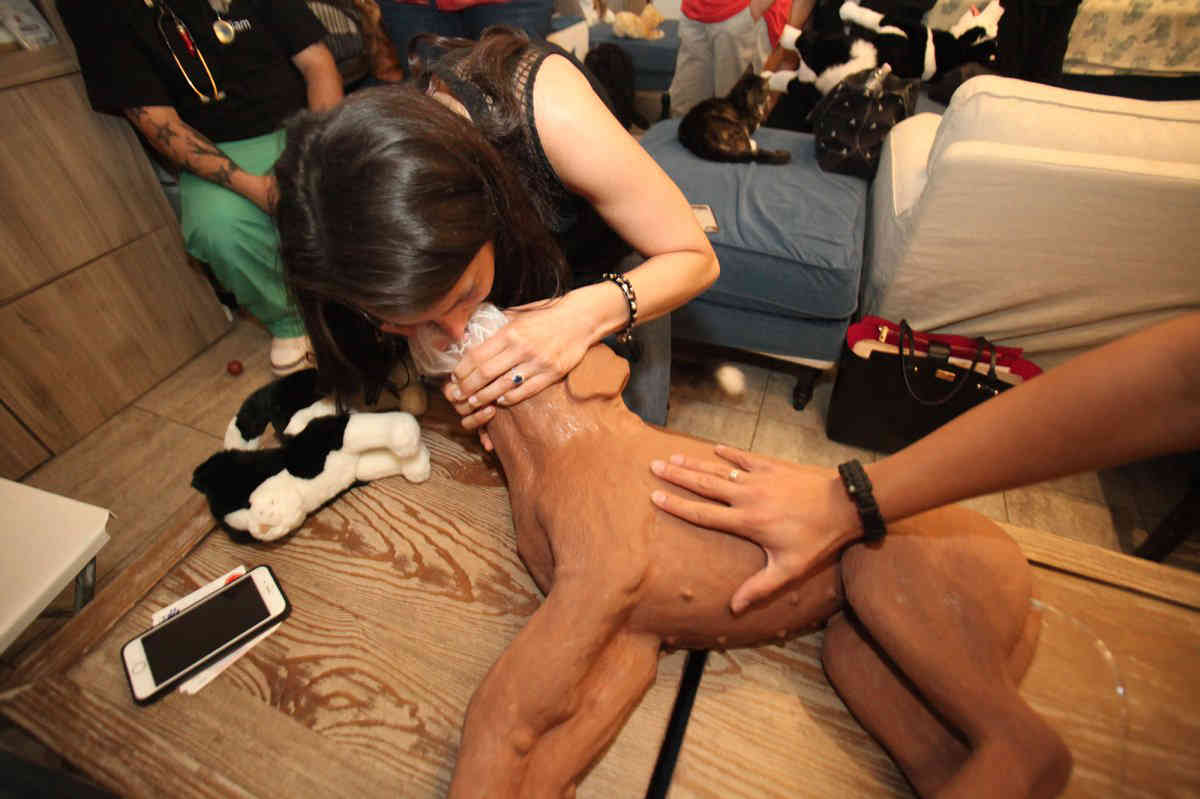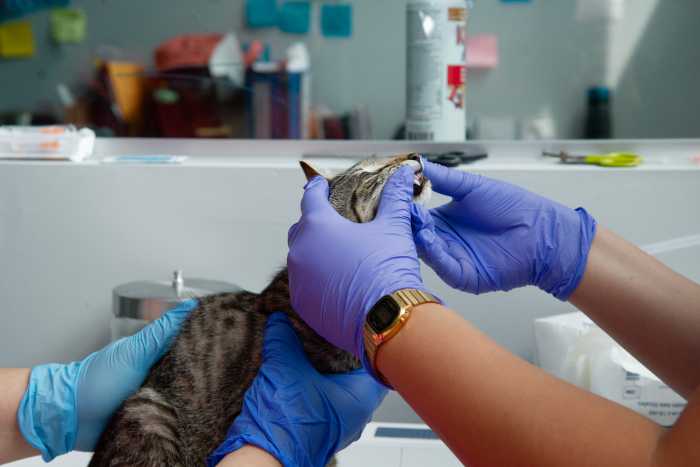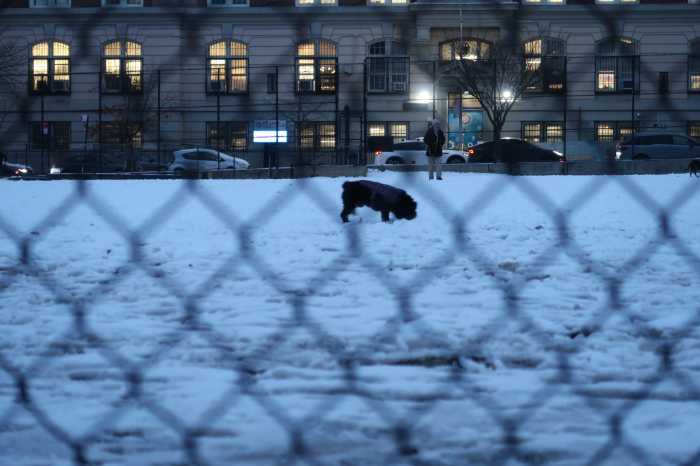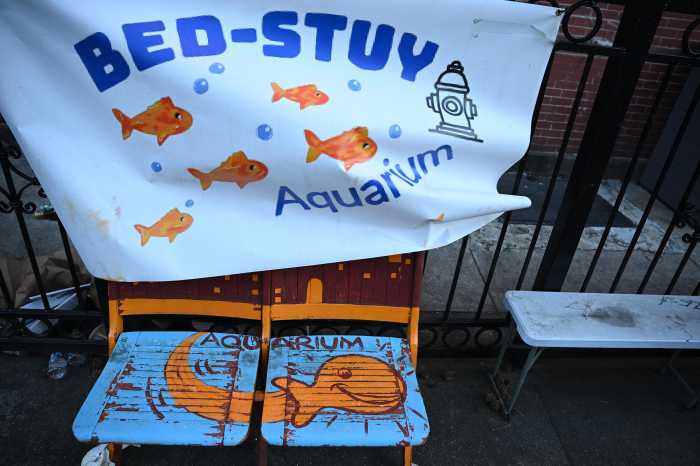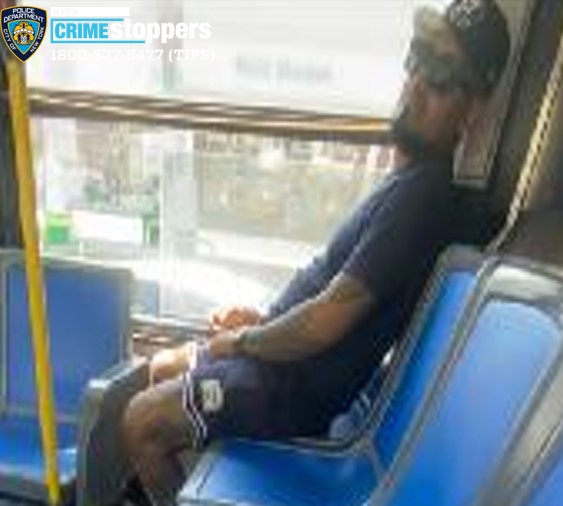They learned how to save a life — or nine.
More than a dozen animal lovers learned how to give vital mouth-to-snout resuscitation to their furry friends at a Brooklyn Heights rescue’s first-aid seminar on Wednesday.
The class, led by an expert in dog and cat cardiopulmonary resuscitation, or CPR, taught attendees how to spring into action if Fido’s heart, or those of his feline nemeses, ever suddenly stop beating.
“It’s good knowledge to have, being a cat lover and a pet owner,” said Judy Stachow, who works as a pet-sitter.
Instructor Adam Pernice — a former medic at Long Island College Hospital before the Cobble Hill medical center closed and was bought by a developer — schooled roughly 20 participants in the technique during the three-hour lesson at Atlantic Avenue’s Brooklyn Cat Cafe between Henry and Clinton streets.
Pernice, with aid from a rubber pooch, demonstrated how to perform the procedure on pups, which requires covering a mutt’s mouth, delivering a breath of air into its nostrils, and checking for a pulse by feeling one of two arteries near where its legs meets its groin. If no pulse is found, you perform around 30 chest compressions before repeating the cycle, the instructor said.
The procedure is more or less the same for cats, except you breathe into its mouth and close off its nose — not unlike human CPR.
No live animals participated in the session, although some of the Cafe’s adoptable cats looked on as students practiced the technique.
The pro also taught attendees what to do if furballs choke on their favorite treat — large dogs receive a version of the Heimlich maneuver, in which a you get behind the beasts and deliver abdominal thrusts; small dogs and cats are held in your hands facing downward, and you pat their backs to expel whatever is lodged in their throats — as well as how to treat pets for hypothermia, hyperthermia, allergic reactions, seizures, drownings, and car-accident wounds.
Attendees left the course certified in performing animal CPR, but Pernice reminded them that their newfound skill should not replace treatment from an expert in the event of a serious incident.
“Just because we do it, does not mean we’re going to have a good outcome,” he said.
And the instructor encouraged his pupils to keep an eye out for little things at home that could lead to big problems if ingested by pets, including exposed electrical outlets and poisonous houseplants.
“You have to pet-proof your home,” Pernice said. “Our pets are like kids, constantly putting things in their mouth.”



